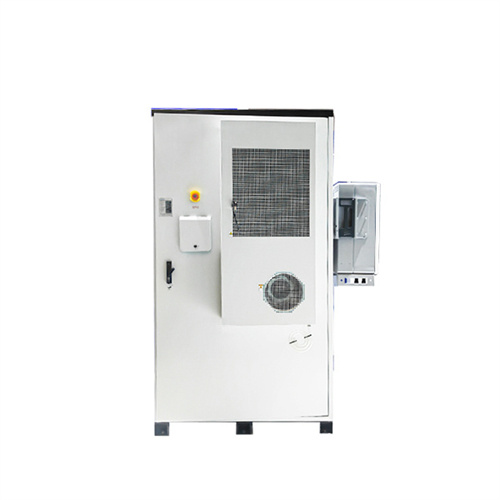Latest unit price of energy storage
The dollar-per-kilowatt ($/kW) cost of storage increased from $1,580 in the first quarter of 2021 to $1,993 in 2022.
As the photovoltaic (PV) industry continues to evolve, advancements in Latest unit of energy storage have become critical to optimizing the utilization of renewable energy sources. From innovative battery technologies to intelligent energy management systems, these solutions are transforming the way we store and distribute solar-generated electricity.
6 FAQs about [Latest unit price of energy storage]
How much does energy storage cost?
Electricity Energy Storage Technology Options: A White Paper Primer on Applications, Costs and Benefits. EPRI-1020676, Final Report, December 2010, Electric Power Research Institute, Palo Alto, California. RedT Energy Storage. 2018. “Gen 2 machine pricing starting at $490/kWh.”
How much does energy storage cost in 2025?
The red diamonds that are overlaid across the other results provide a forecasted cost for each technology for the year 2025 on a $/kWh-yr basis. Pumped storage, when additionally compared on an energy basis, offered a very low cost of $19/kWh-yr using 2018 values if compared to the battery storage technologies, as shown in Figure 5.3.
How are battery energy storage costs forecasted?
Forecast procedures are described in the main body of this report. C&C or engineering, procurement, and construction (EPC) costs can be estimated using the footprint or total volume and weight of the battery energy storage system (BESS). For this report, volume was used as a proxy for these metrics.
Does energy storage capacity cost matter?
In optimizing an energy system where LDES technology functions as “an economically attractive contributor to a lower-cost, carbon-free grid,” says Jenkins, the researchers found that the parameter that matters the most is energy storage capacity cost.
Which energy storage technologies are included in the 2020 cost and performance assessment?
The 2020 Cost and Performance Assessment provided installed costs for six energy storage technologies: lithium-ion (Li-ion) batteries, lead-acid batteries, vanadium redox flow batteries, pumped storage hydro, compressed-air energy storage, and hydrogen energy storage.
How much does battery storage cost?
For longer-term storage, PSH and CAES give the lowest cost in $/kWh if an E/P ratio of 16 is used at $165/kWh and $104/kWh, respectively, inclusive of BOP and C&C costs, while their cost is $660/kWh and $417/kWh, respectively at an E/P ratio of 4.1 Hence, even at the low E/P ratio of 4, they are competitive with battery storage technologies.

